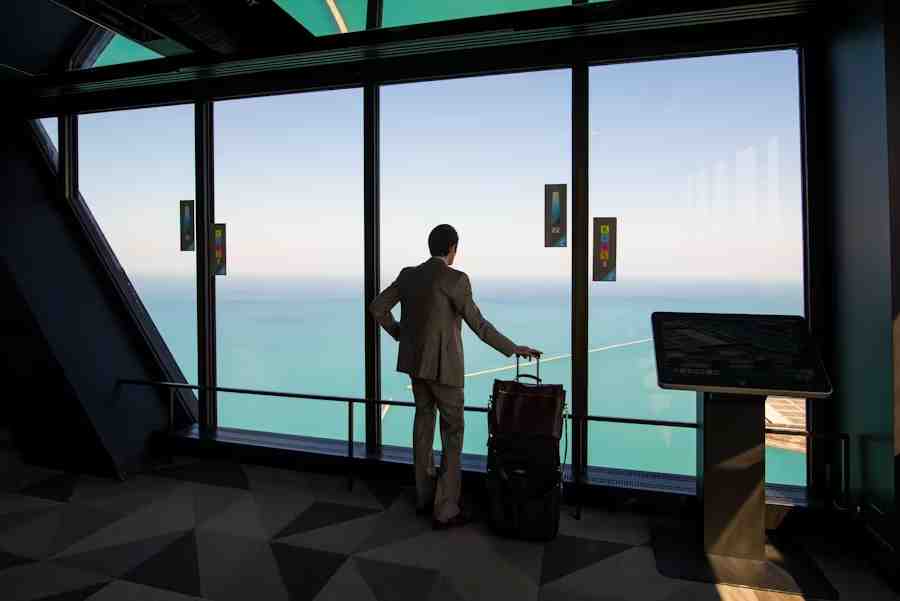A Guide to Germany's Business Hubs: Frankfurt, Munich, and Berlin

Germany stands as the undisputed economic powerhouse of Europe, renowned for its industrial might, engineering prowess, and fiscal discipline. However, unlike many other major economies that are dominated by a single capital city (like the UK with London or France with Paris), Germany's economic power is remarkably decentralized. Its business activity is distributed across several key cities, each with its own distinct economic identity, cultural flavor, and strategic importance. For any business traveler looking to engage with the German market, understanding the unique roles of these major hubs is crucial for planning an effective and efficient trip. You don't just "go to Germany" for business; you go to a specific city for a specific purpose.
This guide will explore the three most important business hubs in Germany—Frankfurt, Munich, and Berlin—highlighting their unique characteristics to help you connect with the right people in the right place and tailor your approach for maximum success.
Frankfurt am Main: The Financial Center ("Mainhattan")
Often nicknamed "Mainhattan" due to its impressive skyline and its location on the Main River, Frankfurt is the undisputed financial capital of Germany and, arguably, of continental Europe. Its importance has only grown in the post-Brexit landscape, as many financial institutions have moved operations there from London.
-
Who to Meet Here: Your meetings in Frankfurt will almost certainly revolve around the world of finance. This is the place to connect with professionals in banking, investment management, insurance, financial regulation, and fintech. The city is home to the European Central Bank (ECB), the Deutsche Bundesbank (German Federal Bank), the Frankfurt Stock Exchange, and the headquarters of major commercial banks like Deutsche Bank and Commerzbank.
-
Logistics and Travel: Frankfurt's biggest logistical asset is its airport. Frankfurt Airport (FRA) is one of the busiest airports in the world and a major international hub for Lufthansa. It offers excellent global connectivity, making it an easy entry point into Germany. From the airport, the city center is just a short 15-minute train ride away. The city itself is relatively compact and has an efficient public transport system (U-Bahn and S-Bahn), making it easy to get to meetings. The business travel essentials for Europe apply strongly here, with rail being a great option for onward travel.
-
Business Culture: The business culture in Frankfurt is what many people imagine when they think of German business: professional, formal, and highly efficient. Punctuality is not just a virtue; it's a requirement. Business attire is conservative (dark suits are the norm), and meetings are typically well-structured and focused on the agenda.
Munich (München): The Tech and Industrial Giant
The capital of the southern state of Bavaria, Munich is a vibrant city that beautifully blends tradition with high-tech innovation. It is an economic powerhouse in its own right, with a focus on advanced industry and technology.
-
Who to Meet Here: Munich is the headquarters for some of Germany's most iconic global companies, particularly in the automotive, engineering, and technology sectors. This is the home of BMW and Siemens. The insurance giant Allianz is also headquartered here. Beyond the established giants, Munich has a thriving startup scene, particularly in B2B software, mobility, and deep-tech fields. This is the city to visit for meetings related to engineering, software development, industrial technology, and corporate strategy.
-
Logistics and Travel: Munich Airport (MUC) is another major international hub, consistently ranked as one of the best airports in Europe. The S-Bahn train provides a reliable 40-minute connection to the city center. Munich's public transport system is excellent and easy to navigate.
-
Business Culture: While still maintaining the German standards of professionalism and punctuality, the business culture in Munich is often perceived as being slightly more relaxed and social than in Frankfurt. The famous Bavarian "Gemütlichkeit" (a feeling of warmth, friendliness, and good cheer) can sometimes permeate business life. After-work socializing, perhaps in one of the city's famous beer gardens during the summer, is a common part of building business relationships.
Berlin: The Dynamic Startup and Creative Capital
As Germany's political capital, Berlin is the seat of government. However, its economic identity has been forged in the crucible of creativity, technology, and entrepreneurship. Since the fall of the Berlin Wall, the city has transformed into one of Europe's most vibrant and dynamic startup ecosystems.
-
Who to Meet Here: Berlin is the place to be for anything related to the digital economy. This is where you will find a dense concentration of startups, venture capitalists, digital marketing agencies, and e-commerce companies. The city is a magnet for young, international talent, making it a hub for innovation in fields like fintech, health tech, and media tech. It is also a major center for the creative arts and culture.
-
Logistics and Travel: Berlin's new Brandenburg Airport (BER) now serves as the single airport for the city. It is connected to the city center by regional trains (FEX, RE7, RB14), which are generally faster than the S-Bahn. Berlin's public transport system is extensive and operates 24/7 on weekends.
-
Business Culture: The business culture in Berlin stands in stark contrast to the rest of Germany. It is much less formal, more international, and highly dynamic. In the startup scene, the dress code is casual (jeans and sneakers are common), the working language is often English, and the hierarchy is much flatter. It's a culture that values innovation, creativity, and speed over traditional German formality.
A successful business strategy for Germany requires a clear understanding of this economic geography. Targeting Frankfurt for a banking deal, Munich for an engineering partnership, and Berlin for a tech investment will ensure you are in the right place, talking to the right people. Utilizing a smart travel management platform can help you efficiently plan a multi-city itinerary, booking high-speed trains between these hubs to maximize your time on the ground.